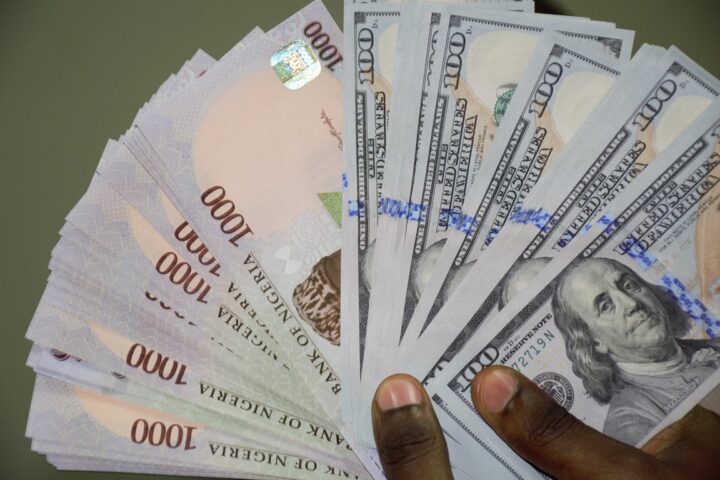Nigeria recorded N1.94 trillion foreign trade deficit in 2021, according to a report by the National Bureau of Statistics (NBS).
This implies a negative trade balance as the Nigerian economy is still import-driven and depends largely on exports of petroleum and some agricultural products to meet foreign exchange earnings.
In 2020, the country recorded its first annual trade deficit in four years as imports exceeded exports by N7.37 trillion.
In its report, “Foreign Trade in Goods Statistics (Q4 2021),” released on Tuesday, the NBS revealed that the country’s total merchandise trade stood at N11,707.20 billion, an increase of 11.79 percent over the value recorded in the Q3, 2021 and 74.71 percent higher compared to the Q4 2020.
Advertisement
The report further shows that total export for 2021 stood at N18.91 trillion while total imports stood at N20.84tn, leaving a trade deficit of N1.94 trillion.
“In 2021, the value of total trade stood at N39.75 trillion, which is 57.60 per cent higher than the value recorded in 2020,” the report reads.
“The value of total imports in 2021 stood at N20.84 trillion, which is 64.11 percent higher than the value recorded in 2020, while total exports were valued at N18.91 trillion, showing an increase of 50.99 percent than the value recorded in 2020. Overall in 2021, merchandise trade recorded a deficit of N1.94 trillion.”
Advertisement
The report shows that imports stood at N5.94 trillion in the fourth quarter of 2021 while export was N5.77 trillion.
“Export in the fourth quarter of 2021 was still oil-dependent. Crude oil exports recorded N4.27 trillion, and it remained the major product in total exports (74.04 percent), while non-crude oil was valued at N1.49 trillion or 25.96 percent of total exports of which non-oil products contributed N810.88 billion, representing 14.06 percent of total exports during the quarter under review,” it added.
The top three countries that accounted for the highest share in Nigeria’s total exports in Q4 2021 were India (15.17 percent), Spain (13.69 percent) and France (8.42 percent).
China (27.8 percent), Belgium (10.3 percent) and India (7.24 percent) were the countries Nigeria imported the most goods from during the period.
Advertisement
The International Monetary Fund (IMF) had advised Nigeria to diversify its exports, as doing so would be beneficial to its economy.
In its latest ‘Nigeria: Selected Issues Paper’ report, IMF said Nigeria had not implemented much export diversification over the years.
“Nigeria has achieved little export diversification over the past decades. Diversification can be attained by including new commodities in the export portfolio (extensive margin) and changing the share of existing commodities (intensive margin),” the report read.
“Over the past decades, Nigeria failed to diversify exports at the extensive margin, nor did it add new sub-products within the oil and the few commodities that it exports to achieve a more balanced mix of exports.”
Advertisement
The report said Nigeria added only 47 new products to the export portfolio between 1990 and 2020, unlike many other countries.
Advertisement
Add a comment







